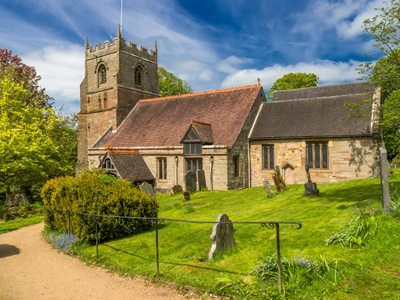
Ask the AI Tutor
Need help with Nouns (Basics) 01? Ask our AI Tutor!
AI Tutor - Lucy
Connecting with Tutor...
Please wait while we establish connection

In the following statement all the nouns are in capitals: This beautiful CHURCH stands in a FIELD at the END of a ROAD.
Nouns (Basics) 01
Nouns label people, places, things, and ideas. In this KS3 English quiz, practise spotting countable and uncountable nouns, and choosing words that match them.
1 .
Choose the correct list of nouns from the following sentence.
The boats are moored at the quay in the harbour.
The boats are moored at the quay in the harbour.
boats, moored, harbour
boats, moored, quay
boats, quay, harbour
moored, quay, harbour
You can put "a" or "the" in front of all the words in the correct answer. Use "a" or "the" to test if a word is a noun
2 .
Choose the correct list of nouns from the following sentence.
The stadium is in the park in the centre of the town.
The stadium is in the park in the centre of the town.
stadium, is, centre, town
stadium, is, park, centre
stadium, is, park, town
stadium, park, centre, town
"Centre" might seem a little tricky at first, but it is a place and also you can use the word "the" or "a" with it
3 .
Choose the correct list of nouns from the following sentence.
A vet was helping an injured animal at the side of a road.
A vet was helping an injured animal at the side of a road.
vet, animal, at, road
vet, animal, side, road
vet, at, side, road
vet, helping, animal, road
"Side" might seem tricky, but is a word specifying a place and is therefore a noun
4 .
Choose the correct list of nouns from the following sentence.
A squirrel sat in a tree holding an acorn in a paw.
A squirrel sat in a tree holding an acorn in a paw.
squirrel, sat, holding, acorn
squirrel, sat, tree, holding
squirrel, tree, acorn, paw
squirrel, tree, holding, acorn
"Sat" and "holding" are verbs
5 .
Choose the correct list of nouns from the following sentence.
The visitors are looking at the exhibits in the museum.
The visitors are looking at the exhibits in the museum.
looking, exhibits, museum
looking, visitors, museum
visitors, exhibits, museum
visitors, looking, exhibits
"Visitors" are people and the word is therefore a noun
6 .
Choose the correct list of nouns from the following sentence.
A dog barked at a cat in a forest by a river.
A dog barked at a cat in a forest by a river.
dog, barked, cat, forest
dog, barked, cat, river
dog, cat, forest, by
dog, cat, forest, river
Each of these nouns has an indefinite article, a ("a dog", "a cat", "a forest", "a river")
7 .
Choose the correct list of nouns from the following sentence.
The box contains a diary, a notebook, a pen and a pencil.
The box contains a diary, a notebook, a pen and a pencil.
box, diary, notebook, pen, and
box, diary, notebook, pen, pencil
contains, diary, notebook, pen, pencil
diary, notebook, pen, and, pencil
What difference to the sentence would be made by writing it this way: "the box contains the diary, the notebook, the pen and the pencil"?
8 .
Choose the correct list of nouns from the following sentence.
The books are on the table by the window in the hall.
The books are on the table by the window in the hall.
are, table, window, hall
books, are, table, window
books, table, window, hall
table, window, in, hall
"Are" is a verb
9 .
Choose the correct list of nouns from the following sentence.
There was a storm on the coast during the night.
There was a storm on the coast during the night.
storm, coast, during
storm, coast, night
storm, on, coast
storm, on, night
"On" is a preposition
10 .
Choose the correct list of nouns from the following sentence.
The farmer stood at the end of the road near the shop.
The farmer stood at the end of the road near the shop.
farmer, at, end, road
farmer, end, road, shop
farmer, of, road, shop
the, end, road, shop
All of the words in the correct answer are places, people or things
**Unlimited Quizzes Await You! 🚀**
Hey there, quiz champ! 🌟 You've already tackled today's free questions.
Ready for more?
Ready for more?
🔓 Unlock UNLIMITED Quizzes and challenge yourself every day. But that's
not all...
not all...
🔥 As a Subscriber you can join our thrilling "Daily Streak" against other
quizzers. Try to win a coveted spot on our Hall of Fame Page.
quizzers. Try to win a coveted spot on our Hall of Fame Page.
Don't miss out! Join us now and keep the fun rolling. 🎉
**Unlimited Quizzes Await You! 🚀**
Hey there, quiz champ! 🌟 You've already tackled today's free questions. Ready for more?
🔓 Unlock UNLIMITED Quizzes and challenge yourself every day. But that's not all...
🔥 As a Subscriber you can join our thrilling "Daily Streak" against other quizzers. Try to win a coveted spot on our Hall of Fame Page.
Don't miss out! Join us now and keep the fun rolling. 🎉






